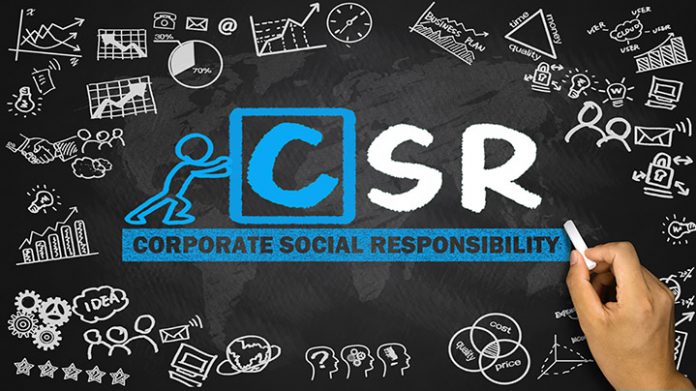This article is written by Suchandra Mukherjee, pursuing a Diploma in Law Firm Practice: Research, Drafting, Briefing and Client Management from LawSikho.
This article has been published by Shoronya Banerjee.
Table of Contents
Introduction
On January 22, 2021, the Ministry of Corporate Affairs (‘MCA’) notified the Companies (Amendment) Act, 2019, and the Companies (Amendment) Act, 2020, of the revisions made to Section 135 of the Companies Act, 2013 (‘the Act’).
On the same date, the MCA issued the Companies (Corporate Social Responsibility) Amendment Rules, 2021 (the “new CSR Rules”). These Rules have considerably transformed the legislative framework that governs the monitoring and evaluation of CSR operations, as well as the usage of CSR funds.
Every firm that meets the requirements of Section 135 of the Companies Act, 2013 (‘Act’) must devote at least 2% of its average net income over the preceding three financial years to Corporate Social Responsibility (CSR) in the current financial year.
According to the Act and the CSR Policy Rules, businesses will be compelled to spend money on CSR. The Ministry of Corporate Affairs (MCA) published the Companies (CSR Policy) Amendment Rules, 2021 (‘Rules’) on January 22, 2021. These rules update the Companies (Corporate Social Responsibility Policy) Rules, 2014.
Corporate Social Responsibility (CSR)
CSR refers to the activities that a corporation engages in order to fulfil the statutory responsibility set forth in Section 135 of the Act and the Rules, but does not include the following:
- The activities that are carried out during the normal course of business. However, in the normal course of business, a company engaged in the development and research of new drugs, vaccines, and medical devices can undertake the development and research of a new drug, vaccine, or medical device relating to COVID-19 for the fiscal years 2020-21, 2021-22, and 2022-23, provided that:
- The corporation collaborates with any of the organizations or institutes listed in Schedule VII item (xi) of the Act to carry out such development and research.
- The corporation separately discloses the facts of the action in its annual report on CSR, which is included in the Board of Directors’ report (‘Board’).
- Activities are undertaken outside India, except the training of sports personnel representing India in national/ international competitions.
- Contribution of any amount to any political party under Section 182 of the Act;
- Activities that benefit the company’s employees as described in Section 2(k) of the 2019 Wage Code.
- Sponsored activities that a firm supports in order to gain marketing benefits for its services or products.
- Other statutory requirements under any law in force in India are fulfilled by these activities.
Companies must ensure that none of these activities is included in their CSR policy, as they have specifically been excluded from the definition of “CSR.” Any costs incurred as a result of these actions are not eligible for CSR credit.
Selection of implementation partners
Rule 4(1) establishes a list of implementing partners that a company may designate to carry out CSR activities. A company established under Section 8 of the Act, a registered public trust, a registered society, and other entities are included in this list. The company can appoint only those entities that are covered by Rule 4(1) as implementing partners. Every entity designated as an implementing partner must register with the Central Government with effect from April 1, 2021.
Increased responsibilities of The Board and the CSR Committee
The new CSR Rules have added new responsibilities to the Board of Directors and the CSR Committee, such as monitoring, evaluating, and reporting on CSR activities. The Board must satisfy itself that CSR funds are being used in a permitted way, according to Rule 4(5). In the event of an “ongoing project,” the Board is required to oversee the project’s implementation in accordance with the agreed timetables, and it can also make changes to ensure that the project runs smoothly.
Rule 5(2) places a new responsibility on the CSR Committee. The CSR Committee is required by Rule 5(2) to produce an “annual action plan” in accordance with the CSR Policy. The annual action plan should cover the following:
- List of CSR projects that have been approved.
- The manner in which CSR projects are carried out.
- Implementation schedules and fund utilization mechanisms.
- Mechanism for monitoring and reporting.
- Impact assessment.
The CSR Committee and the Board have an enhanced monitoring responsibility, according to Rules 4(5), 4(6), and 5(2), in ensuring that CSR operations are carried out in accordance with the CSR Policy and yearly action plan. Even when CSR programmes are carried out directly by a company’s implementing partners, the monitoring and evaluation duties must be met. By disbursing CSR grants directly to implementing partners, these obligations cannot be avoided.
Furthermore, the Board is required under Rule 9 to compose the CSR Committee, the CSR Policy, and the authorized projects which are publically available on the company’s website.
CSR-related “administrative overheads”
Expenses incurred by the corporation for “general management and administration” of CSR activities are described as “administrative overheads” under Rule 2(1)(b). This does not include the expenditures of planning, implementing, monitoring, and evaluating a CSR project or programme. The Board is required by Rule 7(1) to ensure that ‘administrative overheads’ do not exceed 5% of total CSR expenditure in a fiscal year.
We can infer from a combined reading of Rule 2(1)(b) and Rule 7(1) that there is no limit on the amount of money that can be spent on monitoring, evaluating, and planning a CSR project.
Making use of surpluses generated through CSR
Any surplus resulting from CSR efforts should not be included in the company’s business profit under Rule 7(2). Only one of the following options can be used with the surplus:
- It shall be returned to the same project.
- Deposited in the Unspent CSR Account and used in accordance with the CSR Policy;
- Transferred to any of the Act’s Funds listed in Schedule VII.
Rule 7(2) aims to prevent surplus earned through CSR from being used for non-CSR reasons. The surplus generated by the company cannot be re-invested, and it can only be used in one of the two ways specified in Rule 7(2).
“Set-off” of excess CSR expenditures for a fiscal year
A provision was introduced to Section 135(5) of the Companies (Amendment) Act, 2020, allowing a firm to “set-off” the excess CSR amount spent during a financial year for as many future financial years as may be prescribed by regulations. The excess CSR amount must be set-off within the next three financial years, according to Rule 7(3). Before the excess CSR amount is set off, Rule 7(3) imposes two conditions:
- Any surplus earned from CSR operations should not be included in the excess CSR amount;
- Any surplus earned from CSR operations should not be included in the excess CSR amount;
Companies must guarantee that a “set-off” is carried out only when the pre-conditions outlined in Rule 7(3) have been met. The option of “setting off” for excess CSR amounts spent in the current financial year will be available for the next three financial years.
Holding of Capital Assets ‘produced or acquired’ using CSR funding
The CSR amount may be used by the corporation for the “development or acquisition” of a capital asset, according to Rule 7(4). The corporation cannot directly own this capital asset that was “made or purchased” with CSR funding. It can only be owned by one of the entities listed in Rule 7(4), such as a Section 8 corporation, a registered trust/society, and so on. The proviso to Rule 7(4) stipulates that any capital asset created by the company before January 22, 2021, must be transferred within 180 days to any of the entities listed in Rule 7(4).
Capital assets ‘created or acquired’ by the company prior to January 22, 2021, will be divided into two categories:
- Capital assets ‘created or acquired’ out of the company’s profits (e.g., land, buildings, etc.)
- Capital assets that are incidentally used for CSR activities, and capital assets ‘created or acquired’ out of the company’s profits (e.g., land, buildings, etc.) that are incidentally used for CSR activities.
Out of the CSR money allotted for a financial year, capital assets are ‘produced or acquired.’
The proviso to Rule 7(4) mandates that only capital assets ‘produced or acquired’ from earlier CSR allocations can be transferred. The corporation cannot directly hold these capital assets. Capital assets earned from profits and utilized incidentally for CSR operations, on the other hand, can be held by the company and do not need to be returned.
Evaluation of the impact
Every company that is required to spend a minimum of INR 10 crore in CSR should do an impact assessment (through an independent agency) for those CSR programmes that cost INR 1 crore or more, according to Rule 8(3)(a). Only after one year has passed since the completion date of the project can an effect assessment be conducted.
This criterion was implemented in response to the recommendations in the report of the High-Level Committee on Corporate Social Responsibility. The High-Level Committee on Corporate Social Responsibility advised that impact assessments be conducted for specific large-scale projects in order to identify places where intervention is needed to help marginalised people.
Expenses for impact assessment must not exceed 5% of total CSR spending or INR 50 lakhs, whichever is lower, according to Rule 8(3)(c). Because expenses incurred for impact assessment are subject to a specified cap under Rule 8(3)(c), they are not covered by the “administrative overhead” expenses described in Rule 2(1)(d).
Amendment to the CSR Implementation Act
The Board should ensure that the company’s CSR operations are carried out either directly or through:
- Companies formed under Section 8 of the Act, or a registered society or registered public trust formed under Sections 12A and 80G of the Income Tax Act, 1961, by the companies themselves or in conjunction with another company.
- Companies formed under Section 8 of the Act, and/or registered societies and registered trusts formed by the federal or state governments.
- Entities created by a law passed by the legislature of a state or by a law passed by Parliament.
- Companies that are incorporated under Section 8 of the Act, or a registered public society or registered trust under Sections 12A and 80G of the Income Tax Act, 1961, and which have at least three years of experience in similar activities.
The above entities shall register with the Central Government by filing Form CSR-1 with the Registrar, effective April 1, 2021, if they want to engage in CSR activities. Form CSR-1 must be signed and submitted electronically by the entities. In practice, a Company Secretary, Chartered Accountant, or Cost Accountant should digitally verify it.
The system will produce a unique CSR Registration Number after you complete Form CSR-1 on the MCA portal. A firm can hire foreign organisations to monitor, plan, and evaluate CSR programmes and projects in accordance with its CSR policy, as well as to train its employees in CSR.
The Board of Directors of a corporation should ensure that the funds disbursed are used for the purposes and in the way that they have approved. The Chief Financial Officer or the person in charge of financial management should certify this.
In the event of an ongoing project, the Board should keep track of how well it is being implemented according to the authorised timetables and year-by-year allocation. It has the ability to make any changes necessary to ensure that the project is completed on schedule.
In accordance with its CSR policy, the CSR Committee should recommend and prepare an annual action plan to the Board, which should include the following:
- List of CSR programmes or initiatives that have been approved to be implemented in the themes or regions listed in Schedule VII of the Act.
- The manner in which the CSR programmes or projects stated in these Rules are carried out.
- Modalities of the project or programme implementation timetables and funding utilisation.
- Mechanism for project or programme reporting and monitoring.
- Details on the company’s projects, including their impact and any need assessments.
CSR Expenditure Amendment
The Board of Directors of a company must ensure that administrative costs do not exceed 5% of the company’s total CSR expenditure for the fiscal year. The surplus generated by CSR activities will not be included in a company’s business profit and will be transferred to the Unspent CSR Account or reinvested in the same project.
Within six months of the financial year’s end, the company should spend any remaining CSR funds in accordance with its annual action plan, CSR policy, or transfer them to a Fund specified in Schedule VII.
If a company spends more than the amount specified in Section 135(5) of the Act, the excess can be deducted over the next three fiscal years. The surplus arising from CSR activities in accordance with these Rules, however, should not be included in the excess amount available for set-off, and the Board should pass a resolution to that effect.
- A company can use the CSR money to buy or build a capital asset that it owns.
- Companies established under section 8 of the Act, or a Registered Society or Registered Public Trust with charitable purposes and a CSR Registration Number Beneficiaries of the CSR project in the form of collectives, self-help groups, or entities.
- Authorities of the state.
CSR Reporting Amendment
An annual report on CSR with the details specified in Annexure I or Annexure II, as applicable, should be included in the Board report covered by the Rules for any financial year.
In the case of a foreign company, the annual report on CSR filed under section 381(1)(b) of the Act should include the information specified in Annexure I or Annexure II, as applicable. For CSR projects with a budget of Rs.1 crore or more that are executed within a year of the impact study’s completion, every company having a CSR commitment of Rs.10 crore or more should conduct an effective assessment through an independent agency.
The impact assessment reports should be presented to the Board of Directors and attached to the annual CSR report. A company conducting an impact assessment can book CSR expenditure for that financial year, but it must not exceed 5% of total CSR expenditure for that financial year or Rs.50 lakh, whichever is less.
Display of CSR activities on website
The CSR Policy and Projects approved by the Board of Directors, as well as the composition of the CSR Committee, should be made public on the Board of Directors’ website if one exists.
Amendment in the transfer of unspent CSR amount
The company should transfer any unspent CSR funds to any fund listed in Schedule VII of the Act until a fund is specified in Schedule VII in accordance with Sections 135(5) and 135(6) of the Act.
Filing of CSR, I Form
- From April 1, 2021, Form CSR-1 can be filled via the MCA portal.
- Any company or group of companies established by the entity (Trust/ Society/ Section 8 Company): In the Form, you can provide up to 5 CINs of such businesses.
- The entity’s email address must be submitted in Form CSR-1, and the email address must be validated using a One-Time Password (OTP).
- An OTP can be delivered to an email address associated with a single form a maximum of 10 times per day. The OTP will be valid for 30 minutes. In the event of a failure, you must either download a new form the same day or try the OTP the next day.
- The form must include the names of the entity’s Directors/Board of Trustees/Chairman/CEO/Secretary/Authorized Representative (AR). It is necessary to check that the entity’s DIN or PAN is valid and associated with it.
- There will be a maximum of 10 rows available for entering the details of the entity’s Directors/Board of Trustees/Chairman/CEO/Secretary/AR.
- Required attachments: a copy of the entity’s registration certificate and a copy of the entity’s PAN.
Following the instructions below, you can get Form CSR-1 from the MCA portal
- Go to the MCA website by clicking on http://www.mca.gov.in/MinistryV2/companyformsdownload.html
- Go to the bottom of the website and look for “incorporation services.”
- Download the Form in zip file, with or without instructions.
- Extract the contents of the zip file.
- Fully editable PDF versions of Form CSR-1 will be provided.
Conclusion
The new CSR Rules, along with Section 135 of the Act, create a strict regulatory framework for CSR efforts in India. Companies must keep complete records of CSR Committee meetings, CSR money allocations, and initiatives undertaken through implementing partners to ensure compliance with the new regulatory framework.
The initial CSR mandate under Section 135 was based on the ‘comply or explain’ premise, in which a corporation may either engage in CSR activities or explain why it had not spent the CSR amount. Parliament intended for Section 135 compliance to be voluntary rather than compulsory.
Within a seven-year period, there has been a total shift away from the original intent. The transition from the ‘comply or explain’ system is now complete with the publication of the new CSR Rules. In the business world, there is a widespread belief that the new system has grown overly prescriptive.
References
- https://www.icai.org/post/csr-policy-amendment-rules-2021
- https://www.mca.gov.in/bin/dms/getdocument?mds=GTatbQatWaZKl7Zzifcd9Q%253D%253D&type=open
- https://timesofindia.indiatimes.com/blogs/developing-contemporary-india/csr-act-amendments-all-you-need-to-know/
- https://corporate.cyrilamarchandblogs.com/tag/companies-corporate-social-responsibility-amendment-rules-2021/
Students of Lawsikho courses regularly produce writing assignments and work on practical exercises as a part of their coursework and develop themselves in real-life practical skills.
LawSikho has created a telegram group for exchanging legal knowledge, referrals, and various opportunities. You can click on this link and join: https://t.me/joinchat/L9vr7LmS9pJjYTQ9
Follow us on Instagram and subscribe to our YouTube channel for more amazing legal content.
 Serato DJ Crack 2025Serato DJ PRO Crack
Serato DJ Crack 2025Serato DJ PRO Crack











 Allow notifications
Allow notifications


